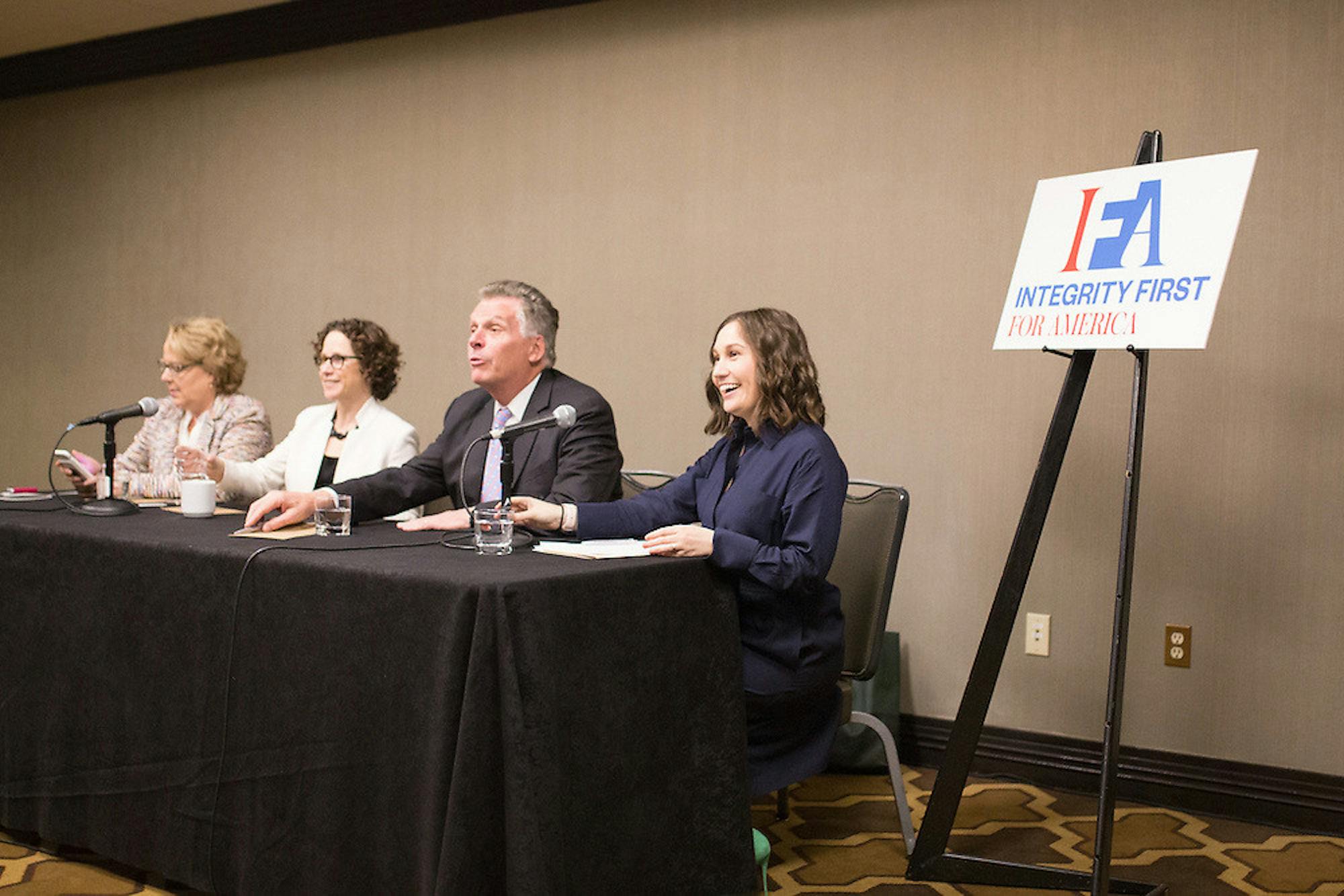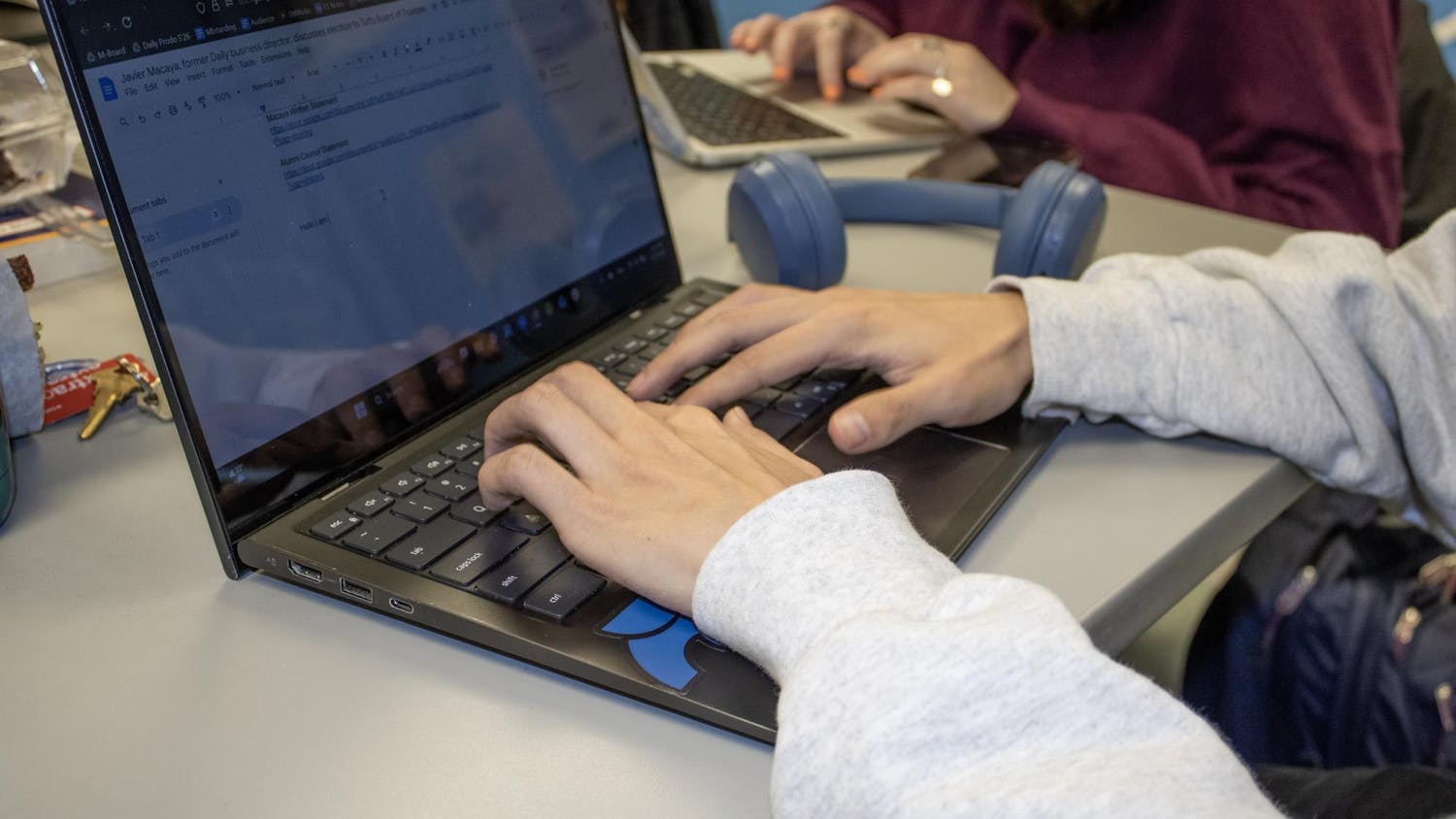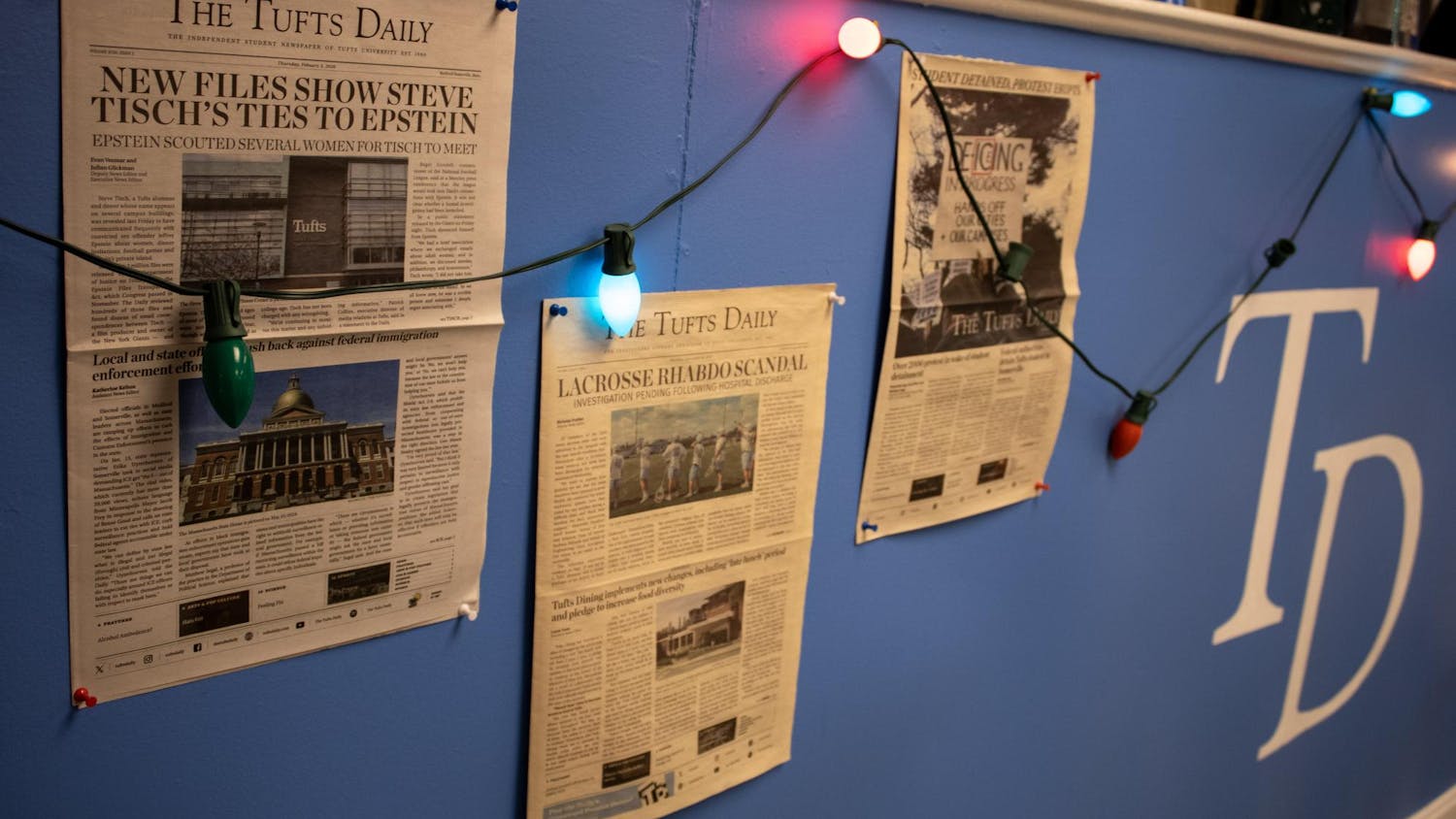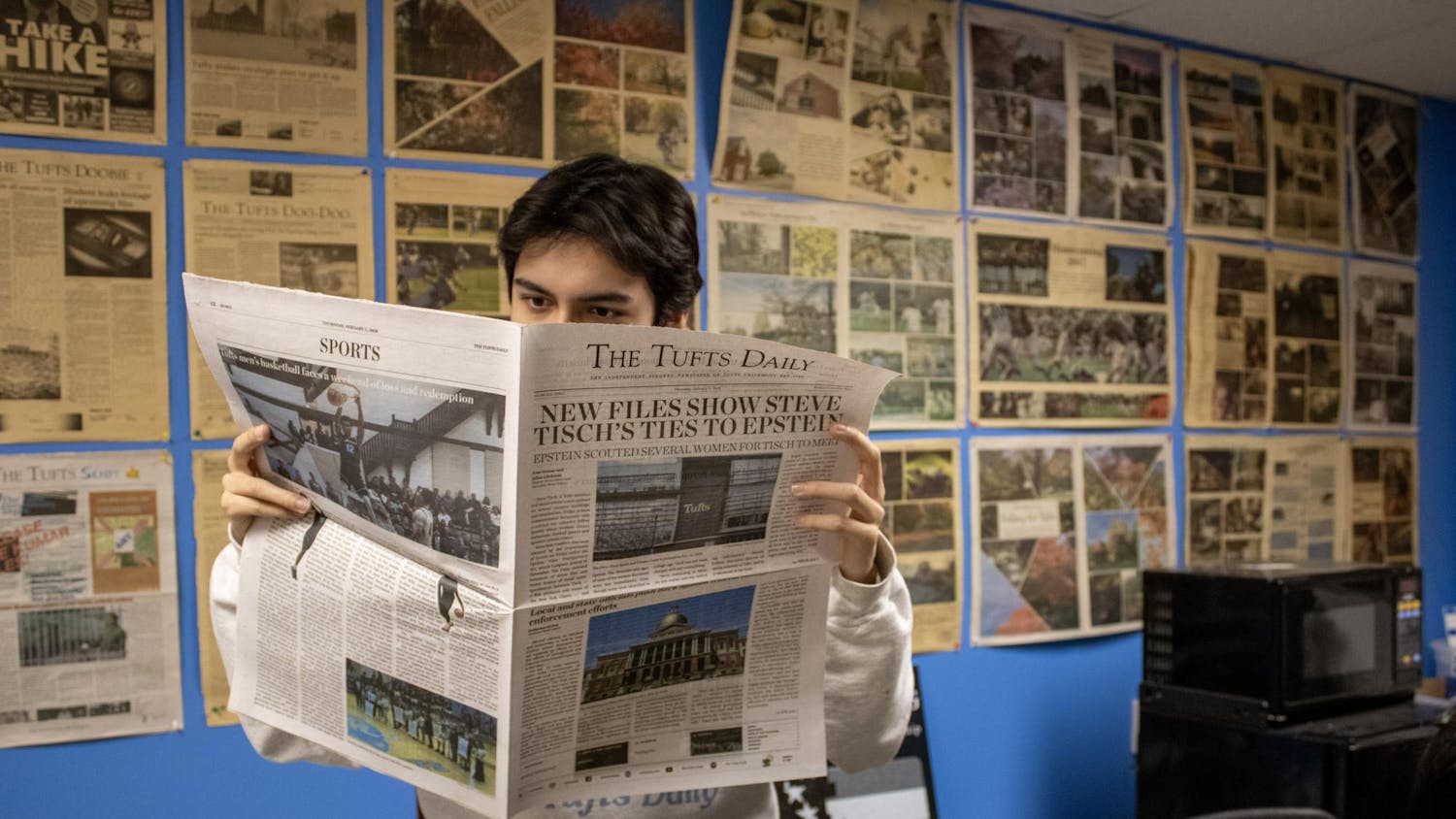Editor's note: This is a continuation of a two-part Q&A. The first part was published in yesterday's issue and can be accessed here.
The Alumni Series aims to create a diverse collection of experiences at Tufts through highlighting notable alumni. This interview has been edited for length and clarity.
The Tufts Daily (TD): What did you do after Tufts?
Amy Spitalnick (AS): So I was very lucky in that I was the last fellow through a program called the Dutko Fellowship that the Tisch College had in collaboration with a Tufts trustee named Deb Jospin for students that wanted to go into public services. So students could basically take a year after graduation and work wherever they wanted to, which is a dream. It was a total dream. Actually, I packed up my car and drove out to New Jersey for a congressional race. It was 2008, ... the year that Obama was running. I knew I wanted to go into politics ... Getting to be involved in a campaign that same cycle as President Obama was huge. Immediately after that, I packed up my car again and moved to D.C., and through this fellowship, started working at a brand new organization [at the time] called J Street. It was founded to provide a political home for pro-Israel, pro-peace Americans and [to] advocate, particularly given the changing administration, for a peaceful resolution to the Israeli-Palestinian conflict. I couldn’t have thought of a better intersection of what I studied here, my experiences here, what I studied in Jerusalem. It was politics, it was communications, it was Middle Eastern studies and I felt so lucky to be one of the first staffers at this organization. I highly suggest to people interested in advocacy and politics to do two things. The first is work on a campaign. Given how small and cash-strapped they are, you often end up getting to do more than you normally would. The second is to work at a small startup nonprofit where, again, you’re one of few staffers and the opportunity to really learn and grow are so much bigger than at a larger organization.
TS: How long were you at J Street and what did you do after?
AS: I was at J Street for almost 3 years as their press secretary. When I was at Tufts, after a conversation with Jeff Berry, my advisor, I decided that the summer between my first-year and sophomore year was the perfect time to get campaign experience. It was a mayoral election year in the city [of New York]. I ended up interning for Anthony Weiner. I was the press intern. That was really how I got into political communications; It was a fantastic opportunity in that on a campaign like that, you really get to do so much and be on the ground in many ways. When I was living in D.C. after graduation, after a few years I felt like it was time for me to move back to New York. Someone I knew from the campaign was then a state senator in New York and was looking for a communications director. So I worked for then-senator Daniel Squadron, who represented lower Manhattan and parts of Brooklyn. That was again an opportunity where, in a small office, in a district like that, with so much potential ... I really got to sharpen my elbows a bit and learn some of the traditional communications skills that are necessary, especially in New York. After, I took a job at City Hall with the de Blasio administration as spokesperson. I was there for almost three years. There, I was the communications point on a number of issues like city and state budgets, labor and contracts, which, in a city with 300,000 employees are a big deal, along with environment and climate change, a number of women’s issues and federal affairs. That was a wonderful opportunity and I have such a soft spot for local and state government because right now, it’s where you can make a lot of difference. From there, I went to the New York State Attorney General (AG)’s Office two weeks before the 2016 election. I think we all assumed the election would go one way. What did happen is that the AG’s office became the front lines for fighting a lot of dangerous policies coming out of the Trump White House. From the first few weeks in January with the travel bans, we were in court within 48 hours if not sooner and beat back the first few iterations of that ban. There were so many other moments, from immigration to women’s healthcare to affordable healthcare to the census. Getting to be involved with those cases and the Trump Foundation lawsuit and the Trump University settlement, there was no better place to be in those first few years. I felt lucky to be able to help protect people’s rights. It also showcased the importance of state and local government. Congress couldn’t do much, so state AGs were the ones who could do the most.
TD: Why do you think political communications is so important?
AS: If no one knows what you’re doing, it often times doesn’t work. So being the person who gets to figure out how to tell those stories to stakeholders and the public, to people whose lives will be impacted by this is such a fascinating role and I’ve also felt very lucky to do that, to take that great work and then figure out how do we actually communicate it in a way that people understand and that resonates with them. You learn so much because, really, you are the person translating the wonky politics or the legal theories to regular people. And I would love digging into these complicated policies for cases and figuring out how we’re going to share this. It’s a fantastic thing to get to do. Right now, in a news environment that is saturated with what the crisis of the second is and a news cycle that is moving so incredibly fast, getting to spend your days trying to focus the media is a really useful thing to do. It’s daunting but it’s also very gratifying.
TD: What was a particularly difficult moment and a particularly rewarding moment you've experienced in your career?
AS: Last year, the former AG resigned. I’m very proud of the way that we came out [of] that. It was a moment where all the work that we were doing on the federal front in terms of fighting those dangerous policies and protecting people’s rights, could have been harmed. But instead, working with some of the best people in the business, we moved very quickly to ensure that the Solicitor General Barbara Underwood was the right person to be put in the job for the rest of the term because continuity was so important. Within a couple weeks, the legislature confirmed her as the next attorney general and the first woman attorney general. Getting to sit on the floor of the state assembly at that moment was one of the best moments of my career as a woman who had grown up in New York ... But the transition was difficult for everyone there at the time but it also provided an opportunity to move the office forward. It’s often times crises that lead to opportunities like that.






